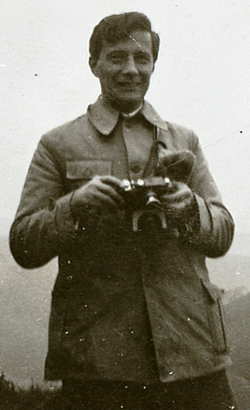Michael Polanyi Quote
It was the merit of Gestalt psychology to make us aware of the remarkable performance involved in perceiving shapes. Take, for example, a ball or an egg: we can see their shapes at a glance. Yet suppose that instead of the impression made on our eye by an aggregate of white points forming the surface of an egg, we were presented with another, logically equivalent, presentation of these points as given by a list of their spatial co-ordinate values. It would take years of labour to discover the shape inherent in this aggregate of figures - provided it could be guessed at all. The perception of the egg from the list of co-ordinate values would, in fact, be a feat rather similar in nature and measure of intellectual achievement to the discovery of the Copernican system.
It was the merit of Gestalt psychology to make us aware of the remarkable performance involved in perceiving shapes. Take, for example, a ball or an egg: we can see their shapes at a glance. Yet suppose that instead of the impression made on our eye by an aggregate of white points forming the surface of an egg, we were presented with another, logically equivalent, presentation of these points as given by a list of their spatial co-ordinate values. It would take years of labour to discover the shape inherent in this aggregate of figures - provided it could be guessed at all. The perception of the egg from the list of co-ordinate values would, in fact, be a feat rather similar in nature and measure of intellectual achievement to the discovery of the Copernican system.
Related Quotes
Certainly we can say that the pace of modern life, increased and supported by our technology in general and our personal electronics in particular, has resulted in a short attention span and an addict...
About Michael Polanyi
His wide-ranging research in physical science included chemical kinetics, x-ray diffraction, and adsorption of gases. He pioneered the theory of fibre diffraction analysis in 1921, and the dislocation theory of plastic deformation of ductile metals and other materials in 1934. He emigrated to Germany, in 1926 becoming a chemistry professor at the Kaiser Wilhelm Institute in Berlin, and then in 1933 to England, becoming first a chemistry professor, and then a social sciences professor at the University of Manchester. Two of his pupils won the Nobel Prize, as well as one of his children. In 1944 Polanyi was elected to the Royal Society.
The contributions which Polanyi made to the social sciences include the concept of a polycentric spontaneous order and his rejection of a value neutral conception of liberty. They were developed in the context of his opposition to central planning.
